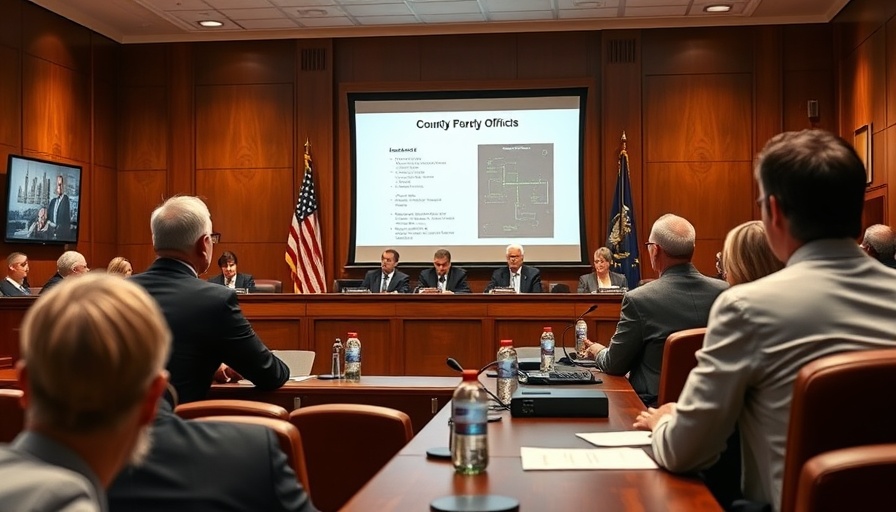
Fort Bend County's Political Landscape in Flux
Fort Bend County is currently experiencing a turbulent phase in its political environment, where the division among commissioners may significantly affect the upcoming redistricting process. On July 22, 2025, the commissioners court, led by County Judge KP George, convened to challenge established norms regarding legal counsel and district mapping.
Understanding the Redistricting Process
Redistricting usually takes place every ten years following the U.S. Census, but the Texas state law mandates counties to periodically examine their voter precincts, an exercise now gaining urgency in Fort Bend County. Republican concerns, voiced by State Rep. Matt Morgan, suggest the county's existing voter map has failed to meet population requirements, igniting a heated debate among the commissioners about the partisan implications of any redistricting initiative.
Power Struggles and Backroom Deals
The meeting escalated as Judge George proposed hiring external legal advisors rather than depending on the County Attorney, Bridgette Smith-Lawson, which fueled suspicions of a power play by the Republican majority to manipulate the redistricting outcomes. Notably, the court's dynamics shifted when the previously Democratic-leaning Judge George switched parties, leading to an apparent tilt in the balance of power.
Debating the Role of Legal Counsel
A critical point of contention arose when Commissioner Grady Prestage questioned the necessity of outside legal counsel, which Judge George could not clearly justify. This suggests a deepening mistrust among the court members, as Smith-Lawson has publicly defended her non-partisan role, insisting that her office serves both Democrats and Republicans.
Democrats in the Shadows
While the Republican commissioners moved to appoint members to the newly formed redistricting committee, Democratic members have yet to designate their appointees. This delay highlights a potential strategic disadvantage for the Democrats, who may need to regroup in light of the GOP's majoritarian tactics.
The Broader Implications
As discussions on redistricting evolve, the outcomes could have broader ramifications beyond the county's voter map. The implications touch on voters' rights, community representation, and the general health of local democracy in Fort Bend County. Beyond partisan maneuvers, stakeholders such as civic groups, community advocates, and residents should remain vigilant about how these developments unfold.
Taking Action: Civic Engagement Matters
Civic engagement becomes crucial during such integral democratic processes. As the tension around redistricting builds, residents can exert influence through public comment during meetings, advocacy for transparent communication from their local government, and encouraging discussions within their communities about what fair representation looks like.
The outcome of the redistricting process is closely tied to community involvement. As greater Houston residents, staying informed through trusted sources like Houston Public Media will empower citizens to participate meaningfully in civic debates.
 Add Row
Add Row  Add
Add 



Write A Comment